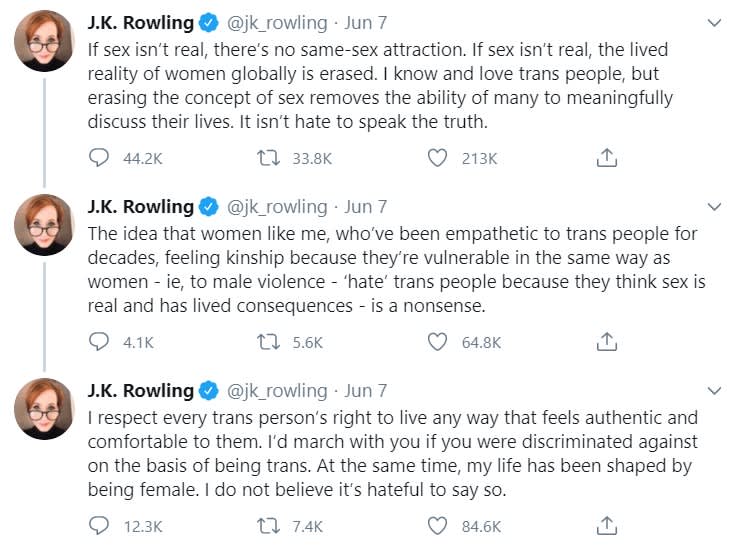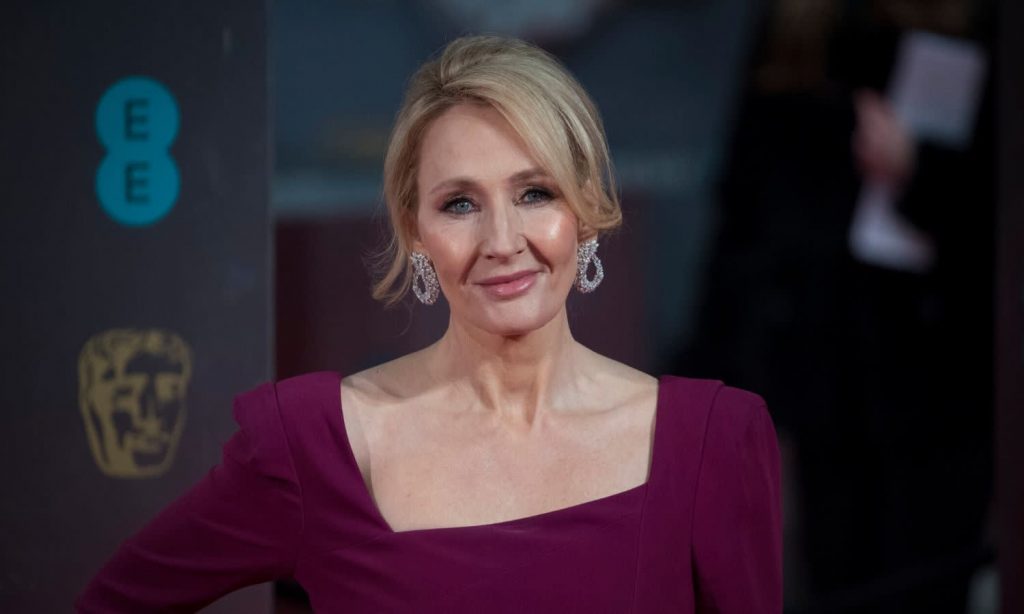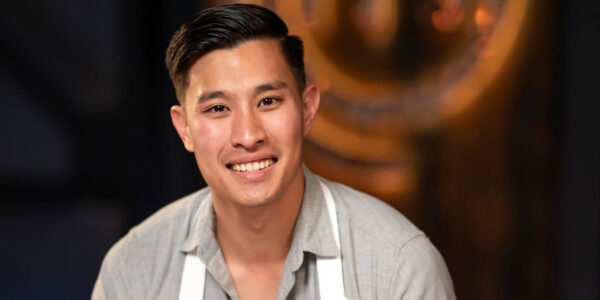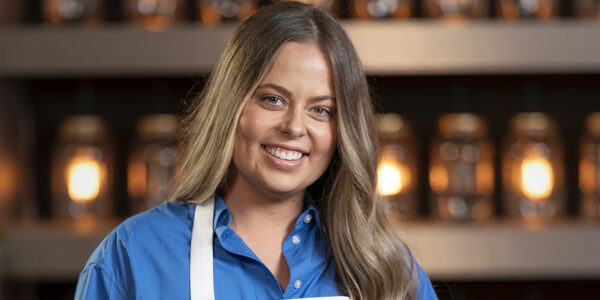A Perth bookstore has said it will remove all books written by JK Rowling and her pseudonym Robert Galbraith after she released a novel that was labelled by the community as “transphobic”.
Her new novel, Troubled Blood, details a male killer dressed in women’s clothing and caused offence worldwide.
Rabble Books and Games in Maylands said the decision came from wanting to “make Rabble a safer space for our community”.
“Part of that is trying not to put books by transphobes on the shelves when we know about them,” owner Nat Latter said in a Facebook post.
Though they don’t sell many now, Latter said she would also remove all Harry Potter books from the shelves, however, people may still order them in. Any profits that she makes from a sale of a Harry Potter book will then be donated to Trans Folk of WA.
“There are more worthy books to put on the shelf – books that don’t harm communities and won’t make us sad to unpack them,” she said.
Latter also asked for “suggested alternatives” of “queer and trans positive fantasy books for young people and crime books for adults”.
Her writing pseudonym Robert Galbraith has been linked to Robert Galbraith Heath — a psychologist who helped develop gay conversion therapy, however, Rowling denied the link saying the ghostwriter was named after Robert F Kennedy and a surname she always liked as a child.
Because of the controversy, the #RIPJKRowling went viral on Twitter earlier this week.
Author JK Rowling Under Fire for More Transphobic Tweets
Update: July 7
On July 7, just a month after Harry Potter author J.K Rowling posted a tone-deaf anti-transgender tweet, the 54-year-old has been criticised for commenting that transgender hormone therapy is “a new kind of conversion therapy” for young gay people.
On Sunday, the author was seen to have ‘liked’ a tweet comparing hormone prescriptions to antidepressants.
“Yes they are sometimes necessary and lifesaving, but they should be a last resort. Pure laziness for those who would rather medicate than put in the time and effort to heal people’s minds,” the tweet read.
Twitter user Triner Scot then called out the author for “liking” the post, saying: “Who had money on JK Rowling pivoting to supporting those who call people who take mental health medication ‘lazy’? I take daily medication to function, this sentiment is beyond offensive, it is actively harmful to millions.”
Then, in an attempt to make sure she was understood, Rowling rattled off 11 more tweets discussing mental health surrounding the transgender community.
I’ve ignored fake tweets attributed to me and RTed widely. I’ve ignored porn tweeted at children on a thread about their art. I’ve ignored death and rape threats. I’m not going to ignore this,” she said.
“When you lie about what I believe about mental health medication and when you misrepresent the views of a trans woman for whom I feel nothing but admiration and solidarity, you cross a line,” she added.
Rowling also spoke of her “own mental health challenges”, expressing concern for young people who are “being shunted towards hormones and surgery when this may not be in their best interests”.
“Many, myself included, believe we are watching a new kind of conversion therapy for young gay people, who are being set on a lifelong path of medicalization that may result in the loss of their fertility and/or full sexual function,” she wrote.
“None of that may trouble you or disturb your belief in your own righteousness. But if so, I can’t pretend I care much about your bad opinion of me.”
When you lie about what I believe about mental health medication and when you misrepresent the views of a trans woman for whom I feel nothing but admiration and solidarity, you cross a line. 2/11
— J.K. Rowling (@jk_rowling) July 5, 2020
Transgender model and activist Munroe Bergdorf responded to Rowling by saying that she is “not a scientist. She is not a doctor. She is not an expert on gender. She is not a supporter of our community.”
“She is a billionaire, cisgender, heterosexual, white woman who has decided that she knows what is best for us and our bodies. This is not her fight.”
J.K. Rowling is not a scientist. She is not a doctor. She is not an expert on gender. She is not a supporter of our community.
She is a billionaire, cisgender, heterosexual, white woman who has decided that she knows what is best for us and our bodies. This is not her fight.
— Protect Trans Kids / BLM ✊🏾 (@MunroeBergdorf) July 5, 2020
Harry Potter Stars Respond to J.K Rowling’s Anti-Transgender Tweets
Update: June 7
Then on June 7, Rowling posted a tweet to her 14.5 million followers.
Following an op-ed written Marni Sommer, Virginia Kamowa and Therese Mahon for outlet Devex titled Creating a More Equal Post-Covid-19 World for People Who Menstruate — Rowling questioned their use of the term “people”.
According to the article, “an estimated 1.8 billion girls, women and gender nonbinary persons menstruate, and this has not stopped because of the pandemic.”
“‘People who menstruate.’ I’m sure there used to be a word for those people. Someone help me out. Wumben? Wimpund? Woomud?” she wrote.
‘People who menstruate.’ I’m sure there used to be a word for those people. Someone help me out. Wumben? Wimpund? Woomud?
Opinion: Creating a more equal post-COVID-19 world for people who menstruate https://t.co/cVpZxG7gaA
— J.K. Rowling (@jk_rowling) June 6, 2020
The tweet was seen as anti-transgender and received serious backlash from people all around the globe.
That same day, Rowling tweeted again.
“If sex isn’t real, there’s no same-sex attraction. If sex isn’t real, the lived reality of women globally is erased. I know and love trans people, but erasing the concept of sex removes the ability of many to meaningfully discuss their lives. It isn’t hate to speak the truth,” she wrote.
“The idea that women like me, who’ve been empathetic to trans people for decades, feeling kinship because they’re vulnerable in the same way as women – ie, to male violence – ‘hate’ trans people because they think sex is real and has lived consequences – is a nonsense.”
“I respect every trans person’s right to live any way that feels authentic and comfortable to them. I’d march with you if you were discriminated against on the basis of being trans. At the same time, my life has been shaped by being female. I do not believe it’s hateful to say so.”

Harry Potter cast members respond

Numerous Harry Potter stars have come forward supporting the trans-community and Rowling has penned a 3,600-word essay.
On June 15, Daniel Radcliffe responded to the comments.
In a blog post for the Trevor Project, an L.G.B.T.Q. youth suicide prevention group, he wrote: “I realize that certain press outlets will probably want to paint this as in-fighting between J.K. Rowling and myself, but that is really not what this is about, nor is it what’s important right now.”
“Transgender women are women,”
“Any statement to the contrary erases the identity and dignity of transgender people and goes against all advice given by professional health care associations who have far more expertise on this subject matter than either Jo or I.”
Radcliffe admitted he was still learning how to be a better ally, outlining The Trevor Project’s Guide to Being an Ally to Transgender and Nonbinary Youth.
“It’s an introductory educational resource that covers a wide range of topics, including the differences between sex and gender, and shares best practices on how to support transgender and nonbinary people.”
“To all the people who now feel that their experience of the books has been tarnished or diminished, I am deeply sorry for the pain these comments have caused you,” he added.
Following his response, former castmate, Emma Watson, took to her Twitter on June 11, saying that “Trans people are who they say they are and deserve to live their lives without being constantly questioned or told they aren’t who they say they are.”
Trans people are who they say they are and deserve to live their lives without being constantly questioned or told they aren’t who they say they are.
— Emma Watson (@EmmaWatson) June 10, 2020
Watson added that she donates to Mermaids (an organisation in the UK which has been helping gender-diverse kids, young people and their families since 1995) and Mama Cash, which supports women, girls, trans people and intersex people to fight for their rights.
Bonnie Wright, who played Ginny Weasley in the Harry Potter film franchise, also showed her support for the community.
“If Harry Potter was a source of love and belonging for you, that love is infinite and there to take without judgment or question. Transwomen are Women. I see and love you, Bonnie x,” she wrote to her 715k followers.
If Harry Potter was a source of love and belonging for you, that love is infinite and there to take without judgment or question. Transwomen are Women. I see and love you, Bonnie x
— Bonnie Wright (@thisisbwright) June 10, 2020
Other Harry Potter actors including Katie Leung (Cho Chang), Noma Dumezweni (who starred as Hermione Granger in the original West End and Broadway runs of Harry Potter and the Cursed Child) and Evanna Lynch (Luna Lovegood) also shared tweets, with Leung sharing a thread of charitable organisations and petitions that support transgender people.
So, you want my thoughts on Cho Chang? Okay, here goes…(thread)
— Katie Leung (@Kt_Leung) June 7, 2020
J.K. Rowling defends herself in 3,600-word essay
On June 11, Rowling defended her comments in an essay blog posted on her website.
In the article titled J.K. Rowling Writes about Her Reasons for Speaking out on Sex and Gender Issues, she discussed her “first violent marriage” and revealed that she is “a domestic abuse and sexual assault survivor.”
“I’m mentioning these things now not in an attempt to garner sympathy, but out of solidarity with the huge numbers of women who have histories like mine, who’ve been slurred as bigots for having concerns around single-sex spaces,” she wrote.
In the essay, Rowling writes of her own personal struggles with sexism and misogyny, and feeling “mentally sexless” during her adolescence, while adding that reading accounts of gender dysphoria by trans men had made her wonder “if I’d been born 30 years later, I too might have tried to transition”.
“The allure of escaping womanhood would have been huge. I struggled with severe OCD as a teenager. If I’d found community and sympathy online that I couldn’t find in my immediate environment, I believe I could have been persuaded to turn myself into the son my father had openly said he’d have preferred,” she wrote.
The author then accused her critics of “groupthink” and “relentless attacks”, and said that while she believed trans people deserved and needed protection, she did not agree that trans women who have not undergone hormone therapy or surgical transition should have access to single-sex spaces.
“When you throw open the doors of bathrooms and changing rooms to any man who believes or feels he’s a woman – and, as I’ve said, gender confirmation certificates may now be granted without any need for surgery or hormones – then you open the door to any and all men who wish to come inside. That is the simple truth,” she said.
Rowling also mentions that the criticism she had received left her in a “very dark place inside my head, as memories of a serious sexual assault I suffered in my 20s recurred on a loop. That assault happened at a time and in a space where I was vulnerable, and a man capitalised on an opportunity. I couldn’t shut out those memories and I was finding it hard to contain my anger and disappointment about the way I believe my government is playing fast and loose with women’s and girls’ safety.”
To read the full essay, you can find it here.
GLAAD and the Human Rights Campaign issue statements
GLAAD, the LGBTQ media watchdog, responded to the essay in a statement.
“It seems J.K. is good at only one thing: writing fantasy. Her misinformed and dangerous missive about transgender people flies in the face of medical and psychological experts and devalues trans people accounts of their own lives. She is sowing divisiveness in a time when real leaders are driving toward unity. And to all the trans and cisgender youth raised on her books who are now loudly speaking up in support of the trans people you know and love, you are the future and we can’t wait to read and watch the beautiful art you will create.”
While the Human Rights Campaign also issued a statement in response.
“The fact that J.K. Rowling is doubling down in using her massive platform to spread anti-trans propaganda while refusing to respond to outreach by LGBTQ groups like the Human Rights Campaign is appalling. As one of the most famous women in the world and one whose work has inspired countless LGBTQ young people to imagine a world of acceptance and inclusivity, she bears an extra responsibility to ensure that her words do not do damage,” HRC president Alphonso David says. “Let me be clear: J.K. Rowling is trafficking in harmful lies at a time when the trans community is facing unspeakable violence. At least twenty-six transgender and gender non-conforming people were killed in 2019. 2020 has already seen at least twelve transgender or gender non-conforming people killed.”
“Trans women are women, and Rowling’s attempt to hide behind the mantle of trans-exclusive feminism hurts both the trans and feminist communities. Rowling’s words are inflicting harm on the transgender and non-binary community, who are already among the world’s most marginalized and endangered populations. If she won’t listen to trans advocates about the harm she is causing, she does not deserve her platform.”
Here are some resources to learn how to be a better ally for the transgender community in Australia:
— Trans Pride Australia: Trans Pride Australia creates a safe and supportive space to: Connect with other TGD people and family, friends and allies in a closed online environment.
— The Gender Centre: The Gender Centre is committed to developing and providing services and activities, which enhance the ability of people with gender issues to make informed choices.
— LGBTQIA Support Services – ReachOut Australia: A resource for people who have questions about, or feel like they need support related to, sexuality or gender.
— National LGBTI Health Alliance: The National LGBTI Health Alliance is the national peak health organisation in Australia for organisations and individuals that provide health-related programs, services and research focused on lesbian, gay, bisexual, transgender, and intersex people (LGBTI) and other sexuality, gender, and bodily diverse people and communities.
— QLife: QLife provides Australia-wide anonymous, LGBTI peer support and referral for people wanting to talk about a range of issues including sexuality, identity, gender, bodies, feelings or relationships.







